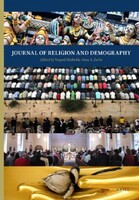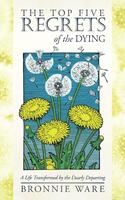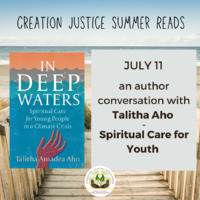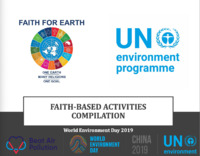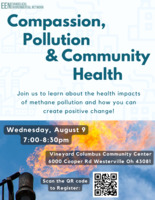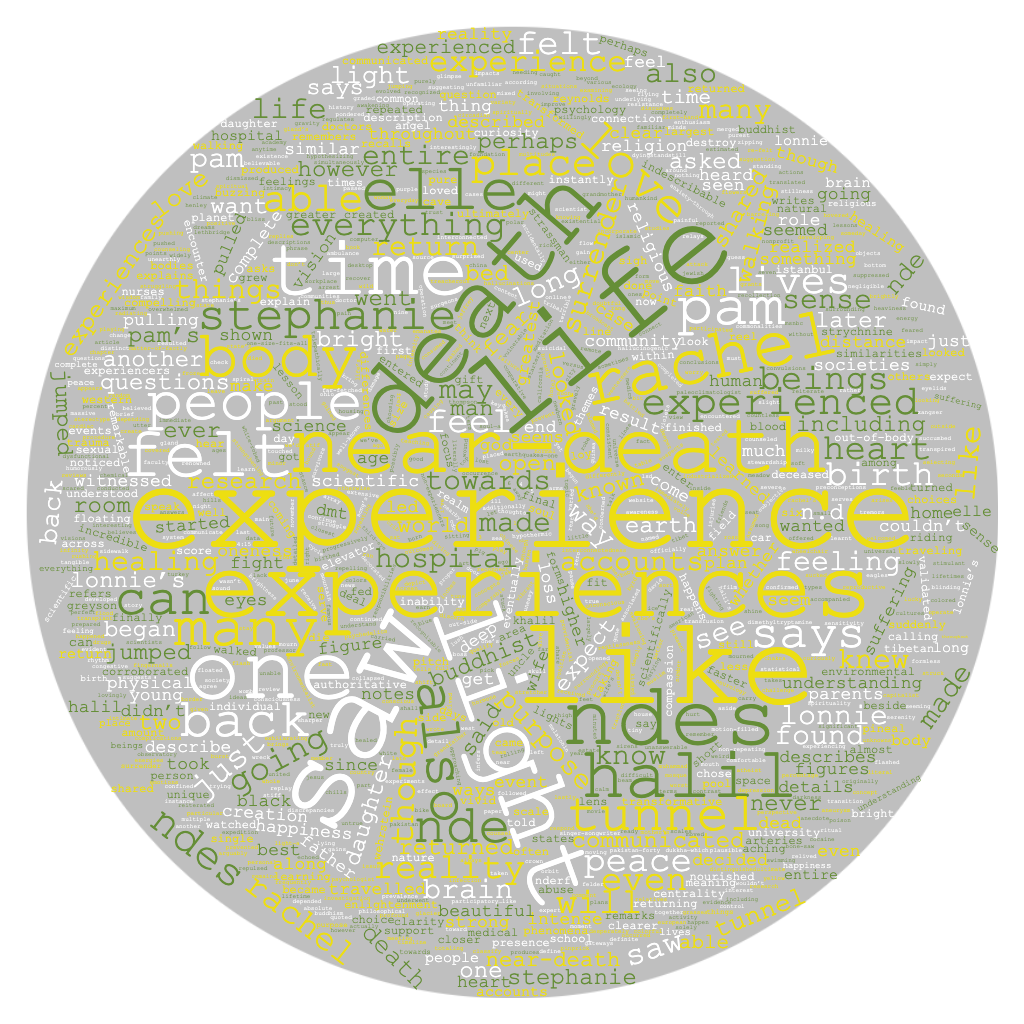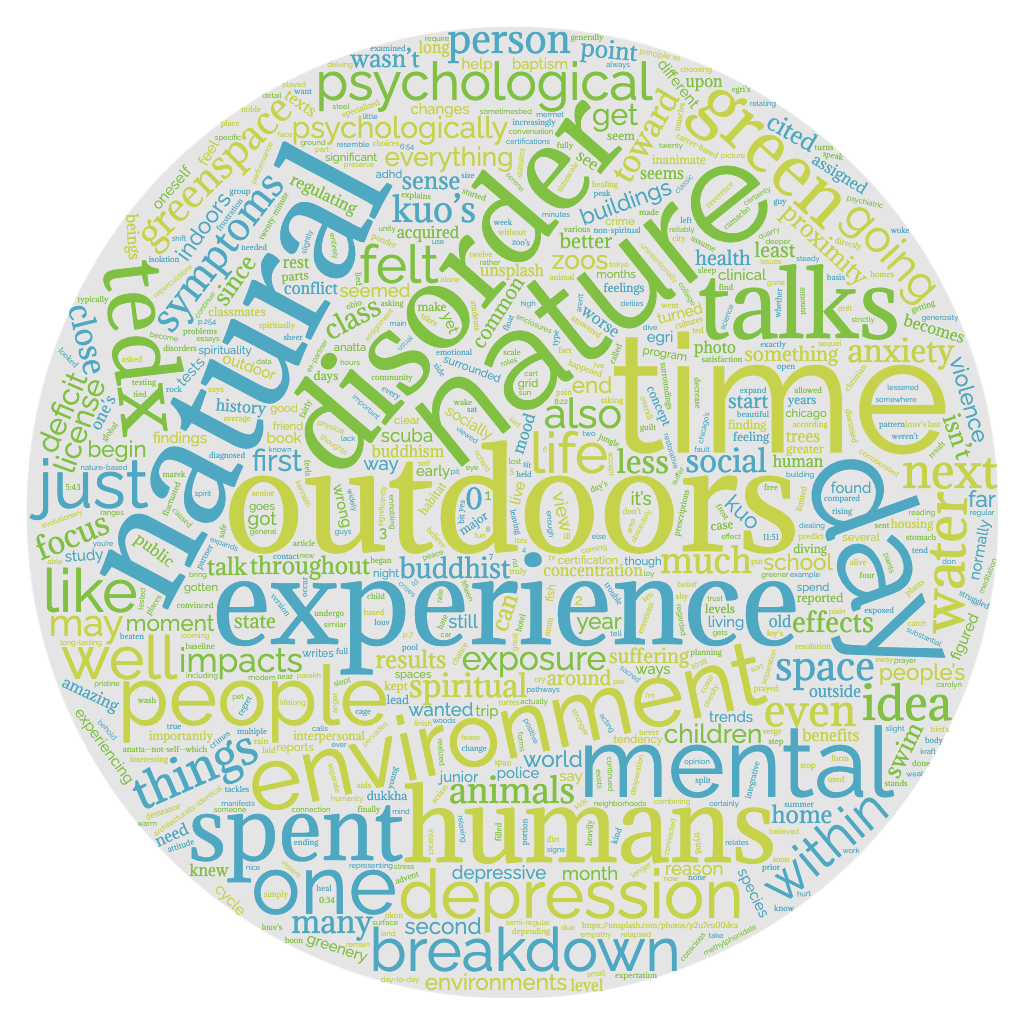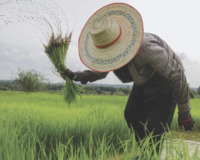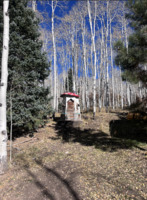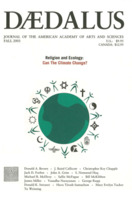Search
96 items
-
ECHO Global Farm
ECHO introduces sustainable plants, climate-resilient techniques, and technologies to farmers around the world who are struggling to feed their families.
Through partnering with local NGOs, farmers, volunteers, and missionaries, ECHO is able to be efficient with their resources in providing aid where it's needed the most.
Empty bellies and empty hearts lead to pain and suffering for individuals, families, and communities across the world. ECHO believes that as active participants in the Great Commission and stewards of great agricultural knowledge, it is their duty to grow and make disciples. -
Profile: EquaSion (Equality, Spirituality, Inclusion)
EquaSion, formerly known as the Bridges of Faith Trialogue, is a non-partisan civic organization founded upon interfaith dialogue that works to develop educational and community service programming to foster greater understanding, respect, compassion, inclusion, and engagement for all people and faith communities in Greater Cincinnati and beyond. -
Sustainable Consumption Research and Action Initiative (SCORAI)
The Sustainable Consumption Research and Action Initiative (SCORAI) is a knowledge network of professionals working at the interface of material consumption, human well-being, and technological and cultural change. We aim to foster a transition beyond the currently dominant consumer society. SCORAI provides a forum for scholars and practitioners striving to understand the drivers of the consumerist economy in affluent technological societies; to formulate and analyze options for post-consumerist lifestyles, social institutions, and economic systems; and to provide the knowledge for emergent grassroots innovations, social movements, and public policies. -
Religious Affiliation and Environmental Challenges in the 21st Century
This paper researches the relationship of religion and environment in the 21st century. They do this by studying religious affiliations from all over the world, and comparing and contrasting their results to examine the impacts those affiliations have on the environment. -
Lessons from Islamic Environmentalism: Interconnection, Structural Change, and the Limitations of Religious Environmentalism
In this article, Rosemary Hancock explores the lessons of religious environmentalism within the Islamic faith and discusses how these lessons were impacted by the coronavirus pandemic and the current environmental crisis. -
The Top Five Regrets of the Dying
"After too many years of unfulfilling work, Bronnie Ware began searching for a job with heart. Despite having no formal qualifications or experience, she found herself working in palliative care.Over the years she spent tending to the needs of those who were dying, Bronnie's life was transformed. Later, she wrote an Internet blog about the most common regrets expressed to her by the people she had cared for. The article, also called The Top Five Regrets of the Dying, gained so much momentum that it was read by more than three million people around the globe in its first year. At the requests of many, Bronnie now shares her own personal story.Bronnie has had a colourful and diverse past, but by applying the lessons of those nearing their death to her own life, she developed an understanding that it is possible for people, if they make the right choices, to die with peace of mind. In this book, she expresses in a heartfelt retelling how significant these regrets are and how we can positively address these issues while we still have the time.The Top Five Regrets of the Dying gives hope for a better world. It is a story told through sharing her inspiring and honest journey, which will leave you feeling kinder towards yourself and others, and more determined to live the life you are truly here to live. This delightful memoir is a courageous, life-changing book." -
In Deep Waters: Spiritual Care for Young People - an author conversation with Talitha Aho
"Join us for a captivating webinar as author Talitha Aho engages in a thought-provoking conversation about her book, 'In Deep Waters: Spiritual Care for Young People in a Climate Crisis.'
Discover how the climate crisis impacts the younger generation and the importance of offering ecologically informed spiritual care. Talitha will also discuss practical ways to care for and respect God's world, drawing on science, Scripture, and her expertise.
Whether you are a caring adult, a member of Generation Z, or simply interested in the intersection of Christianity and the environment, this webinar is not to be missed. Join us for an enlightening dialogue that will deepen your understanding, provide actionable strategies, and ignite hope in the face of our planet's challenges." -
UN Environment Programme Faith-Based Activities Compilation
"The World Environment Day is a UN day celebrated to promote awareness and inspire action. It has been celebrated since 1974. The event has grown to become a global platform for public outreach that is widely celebrated in over 100 countries...In the celebration of World Environment Day, 482 faith-based related activities were organized all around the world" -
Compassion, Pollution & Community Health
This event was created to help people learn about and discuss the health impacts of methane pollution and how to create positive change with the environment and community. -
Magic Mushrooms in Religion and Alchemy
This book discusses the roles that the fly agaric mushroom played in human perceptions of God through many religions. The same religious practices and stories present in some of the most prevalent religions of today can be explained by the beliefs held about Amanita muscaria. As it was thought to be eaten by the Gods, when humans consume it, they become closer to the divine. -
A Glimpse at the Reality Existing After Ours through Near-Death Experiences
This chapter from the student-written book “Emerging Perspectives on Religion and Environmental Values in America” explores the phenomenon of near death experiences through several first-hand accounts. The author explores the spiritual aspect of these experiences and compares and contrasts each instance. Below is the first paragraph of the chapter to introduce the discussion.
"Near-death experiences (NDEs) are gateways for the soul—a profound, transformative experience that has taken place for some who have kissed death and returned. It is estimated that NDEs affect 1 in 10 people (The European Academy of Neurology, 2019). At best, these experiences are dismissed as wild dreams or hallucinations, but we struggle to make sense of what they are. One way some scientists have been trying to explain the reality of near-death experiences is in the connection between psychedelics and psychology. Dr. Rick Strassman (2001), a psychologist who has done extensive research on the topic, is one among many hypothesizing that NDEs are a result of the hallucinogenic chemical dimethyltryptamine, or DMT for short. He suspects that DMT is produced in the pineal gland of the brain, which is an area of the brain we still know little about. Because of the pineal gland’s connection to light (what we do know is that it produces melatonin, a hormone that regulates both the reproductive system and the circadian rhythm), it has been spiritually associated with many ideas of a higher conscious and enlightenment such as the third-eye, crown chakra, and the seat of the soul. Strassman infers that DMT is produced in times of birth, near-death, death, and intense pain." -
Humans as Part of Nature: The Benefits of Time Spent Outdoors for Mental Health
This chapter from the student-written book “Emerging Perspectives on Religion and Environmental Values in America” explores the impact of connecting with nature and the environment on mental health. The author describes their own experiences with mental health problems and healing through activities in nature to frame this issue. Below is the first paragraph of the chapter to introduce the discussion.
"In the summer of 2019, I was a high-school junior going to be a senior the coming year, going on a SCUBA trip out of state with my specialized environmental science class so that I could finish up my certification. This time in life at the end of high school but before college is widely regarded as the most fun and free time for a young person. A time where you’re so close to the end of the life that your parents and the state have laid out for you and still far from the stresses of choosing for yourself in life and dealing with the repercussions of those choices. This expectation was far from where I was at that point in my life." -
Near Death Experiences and their Implications for the Afterlife
This chapter from the student-written book “Emerging Perspectives on Religion and Environmental Values in America” explores the science as well as the spirituality behind near-death experiences. The author assesses hypotheses behind this phenomenon and describes some examples of them occurring. Below is the first paragraph of the chapter to introduce the discussion.
"What happens after death is a mystery that humans all over the world have speculated on since the beginning of time. In many religions, there is a sense of certainty among the followers regarding what to expect when they pass, as promised by God or a higher power they worship. Although no one really knows for sure, the closest we have come to proving the reality of the afterlife are the stories told by people who have had near death experiences, or even died temporarily and came back to life. Spiritual revelations during these incidents are a cross-cultural phenomenon felt all over the world, with details that overlap and hint at the answer to this unsolved mystery." -
An Insight into Wilderness Therapy
This chapter from the student-written book “Emerging Perspectives on Religion and Environmental Values in America” explores the benefits of nature and being in the wild for mental health. The author uses research on wilderness therapy as well as her own experiences to discuss this relationship. Below is the first paragraph of the chapter to introduce the discussion.
"Nature has so many captivating qualities. Whether it be the rustle of summer green leaves, the indescribable blue of the sky on a clear day, or the countless creatures that scurry across the earth’s floor, I always find myself amazed by its peculiar yet familiar structure. Nature is something that is often taken for granted. Yes, individuals are constantly reminded of its presence, but do we often think of its value? For me, the wilderness has been a place of refuge and comfort. Somewhere that I look to when I am feeling lost and confused." -
The Clan of One-Breasted Women
In this excerpt, Terry Tempest Williams reflects on her family's long-running history of developing cancer that traces from nuclear testing in Nevada. Williams emphasizes her experience of coming to terms with deviating from Mormon norms if it means advocating for the U.S. government to take responsibility for liabilities regarding human health. Williams decides blind obediance will not get her anywhere, and she needs to start asking questions. -
Save Soil
This resource details a campaign to improve soil practices to be more sustainable through building up consciousness. The leader of this movement is Sadhguru, a spiritual leader. Sadhguru advocates for connecting inner spiritual processes to an affinity for nature. This is an international organization that started in Tamil Nadu, India. -
Roots for Change
"'Roots for Change' is the culmination of a multi-year process in which CEE conducted research, hosted grassroots dialogues, and organized high-level consultations with communities across the globe. This initiative engaged diverse groups—including religious, spiritual and Indigenous communities—in conversations with UN partners, advocacy organizations and local government officials. By highlighting the ways cultural and spiritual traditions support and sustain ecosystem restoration projects, these consultations informed the 10 principles. ..." -
Compostable
"A compostable outhouse made from recycled/reused wood and aluminum, built with tools fueled by solar and biodiesel." Taken by Ashley Murphy. Submitted to the RESTORExchange Sustainability Photo Contest. -
Envisioning the Daoist Body in the Economy of Cosmic Power
"From a sociological perspective, religious traditions represent and construct the collective values and systems of meaning of human societies. As such, religious traditions influence the way their adherents interpret their experience of the world and, consequently, influence their actions upon it. Religious ideologies, however, are themselves always in medias res. Even though their adherents may uphold an eternal vision of archaic principles handed down from the gods, in actuality this vision is continuously renegotiated and reconstructed in conversation with the changing demands of historical and cultural context." -
Fifth National Climate Assestment, Chapter 16: Tribes and Indigenous Peoples
In this chapter of the Fifth National Climate Assessment, the NOAA outlines and describes three key messages regarding the relationship between Native communities in the U.S and our changing environment. This report goes over how Indigenous peoples face a high risk of changing livelihoods due to climate change and environmental injustice, and how they are responding to these threats. The report also explains the nature of their resilience to such change and how Indigenous leadership can guide our response to climate change. -
From Egoism to Ecoism: Psychedelics Increase Nature Relatedness in a State-Mediated and Context-Dependent Manner
This article describes the correlations between psychedelic use and nature relatedness. The surveyors used questionnaires 1 week before, 2 weeks after, 4, and 2 years after the dose given. They concluded that due to the consistent positive affects on the subjects, the use of psychedelic treatment bears relevance on mental and planetary health.




